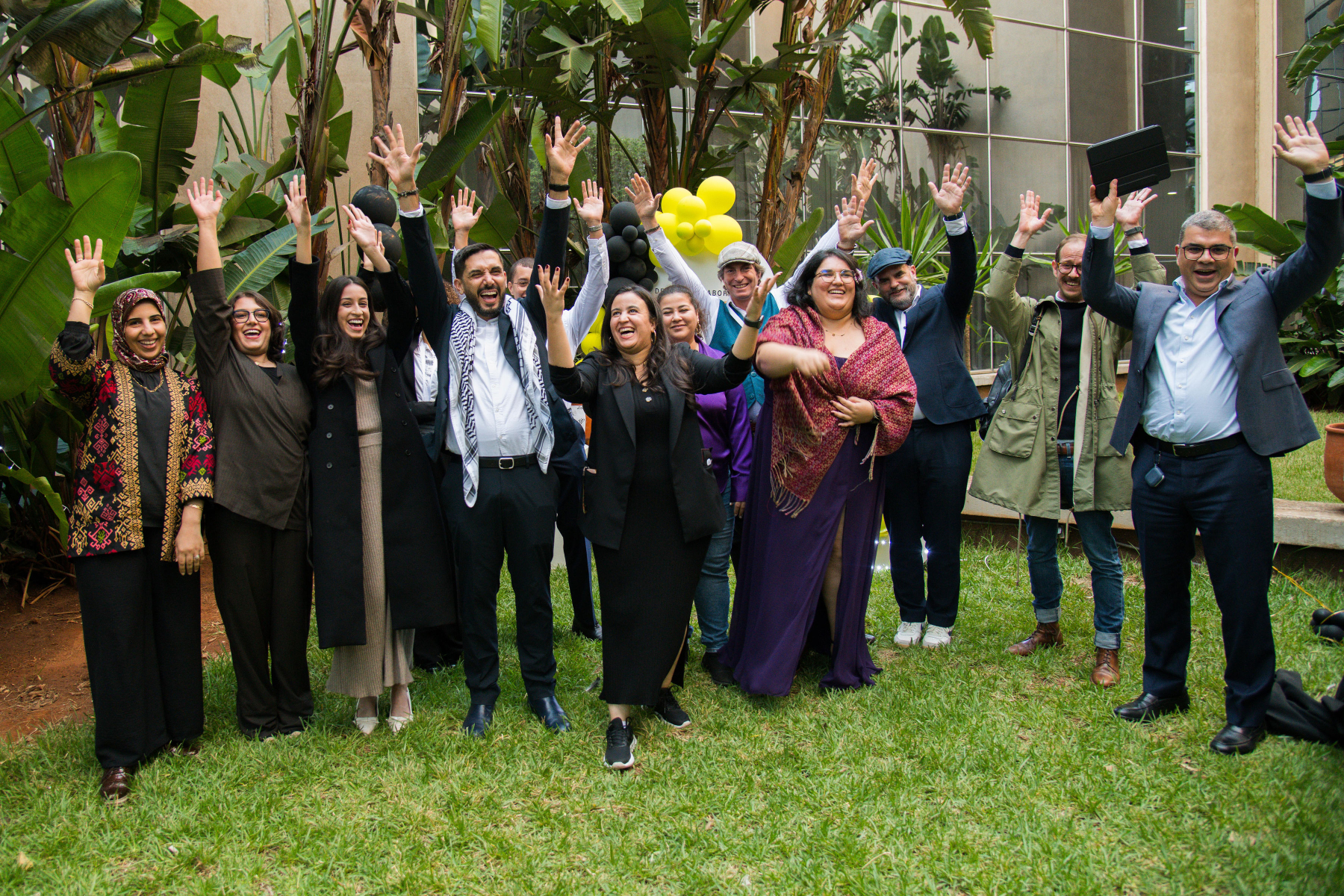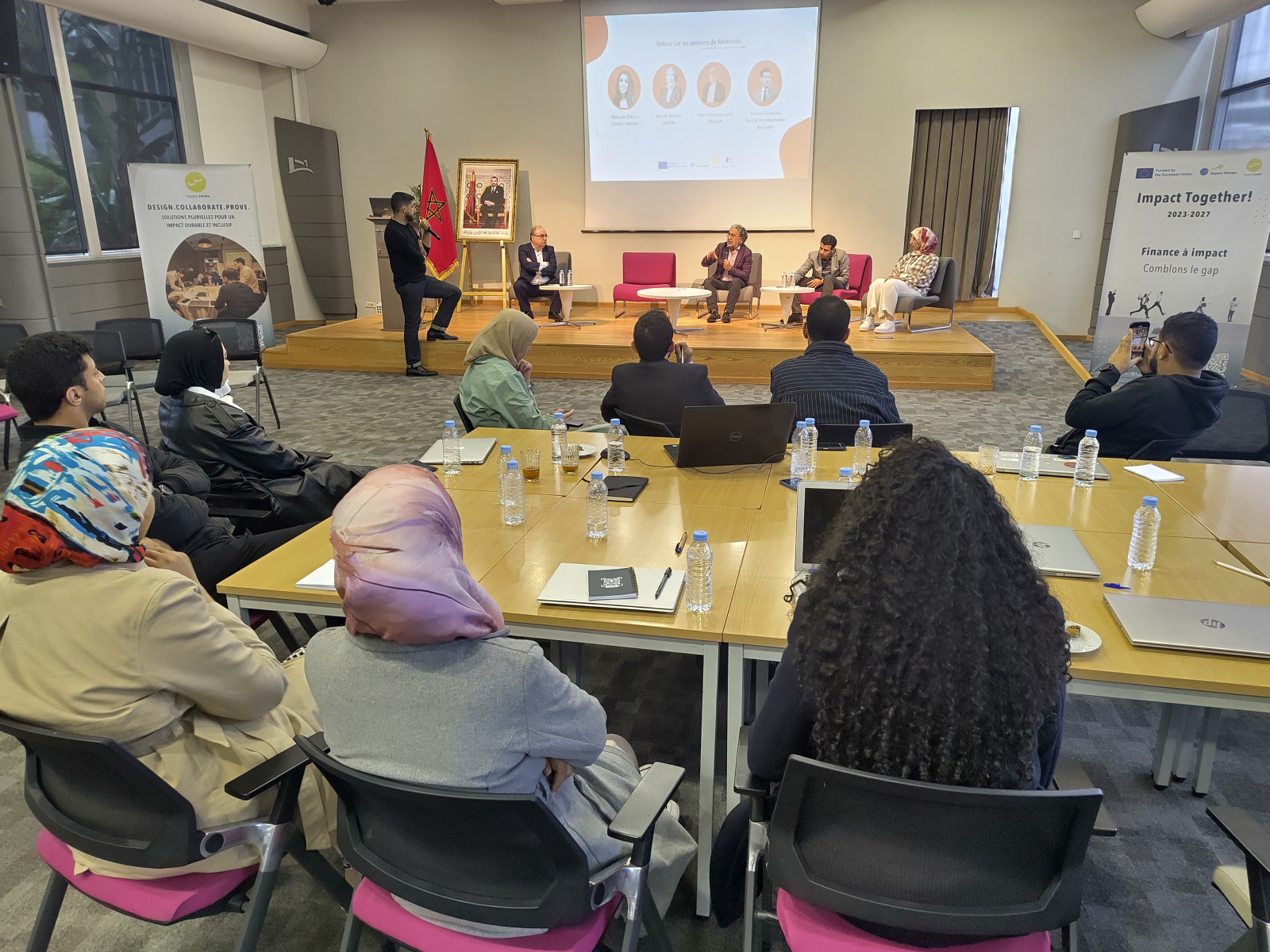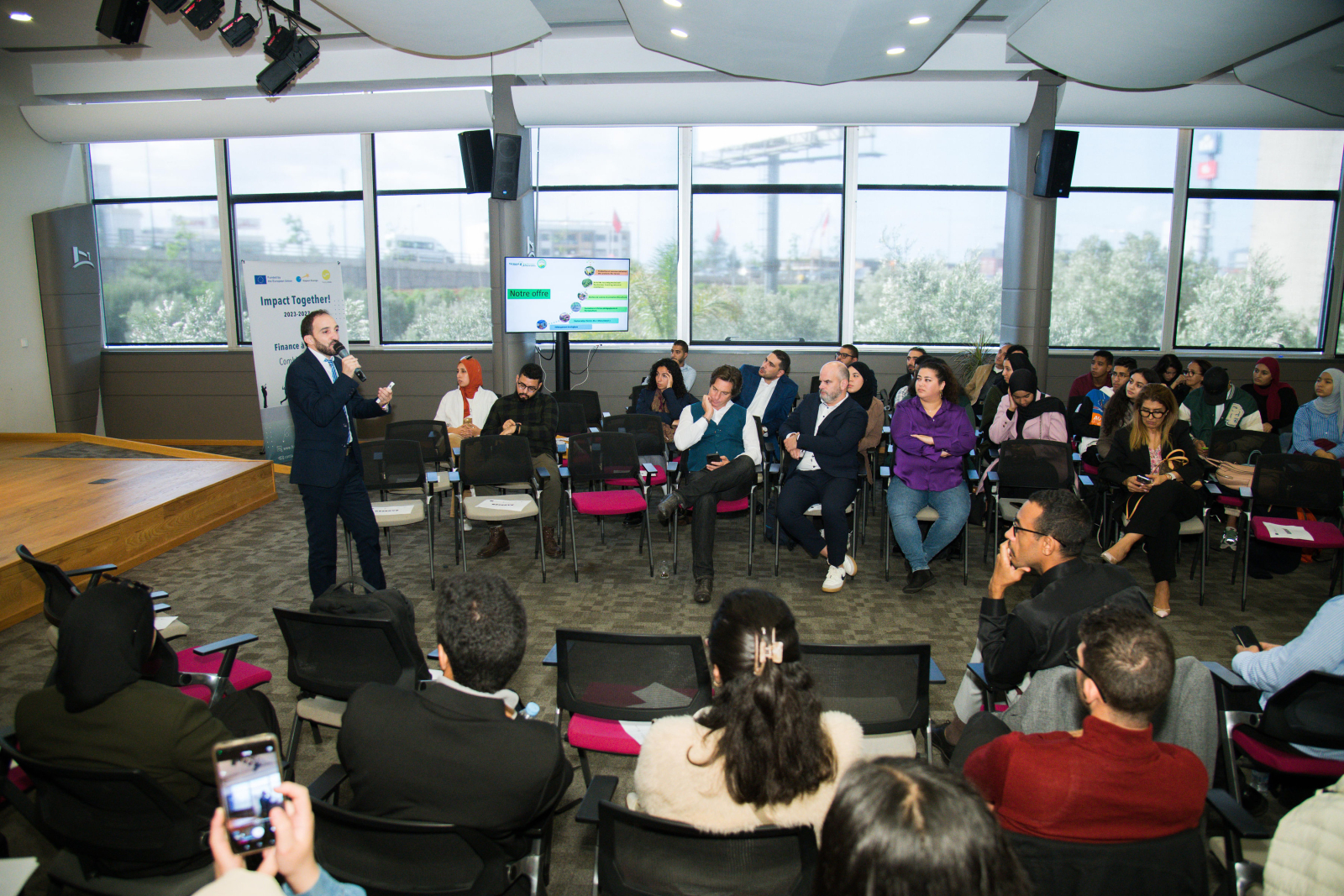Moroccan Blend
Our Moroccan partners in the EU-funded Impact Together!-project, Happy Smala, took their activities into a new gear with an event-filled week focused on blended finance. Social entrepreneurs had the opportunity of participating in a bootcamp, while the impact community at large gathered to establish new connections.

Somewhere in my cupboard, I own a jar of Morocan spice blend. It has been in there for a while, next to the tagine that I use far too sparingly. I must admit that I am not quite certain which spices go into the blend – the flavour is quite hard to pin down, but one thing is for sure: it is interesting, and it does enrichen the few meals I cook with it.
Perhaps the same could be said when it comes to blended finance. From an outsider’s perspective, it may not truly matter how any social enterprise finds its funding or what it is composed of, as long as it can continue to function and to provide its products and services. For the social entrepreneurs themselves, though, it is a different story. They can find themselves going back and forth between public funding and private funding, potentially finding themselves in a sort of financing limbo, hindering their ability to scale. It’s one of the main selling propositions of a blended finance model, that combines public and private funding to leverage additional income and investments.
It is a niche of impact investing that is of great interest to Happy Smala, our Moroccan partners in the EU-funded Impact Together!-project. As they look to support more social enterprises in the years to come, blended finance as a tool is high on their list. Not only does it offer large potential benefits to the social entrepreneurs, but it also offers an integrated approach to constructing a true social economy ecosystem. After all, when it comes to blended finance, every actor has a role to play, maximizing engagement of all stakeholders.
That’s why Happy Smala set up two-pronged event week, featuring a three-day Blended Impact Finance Bootcamp, mainly targeted at entrepreneurs and a variety of funders. At the end of the week, the spectrum was broadened to include even more actors during the Moroccan Impact Finance Forum, a one-day event meant to kickstart a series of investments and connections.
The Bootcamp
The Blended Impact Bootcamp, held in the last week of October, delivered three dynamic days of learning and collaboration. It was set up to be a more intimate event, allowing for the 7 entrepreneurs and 8 funders present to truly get into the nitty gritty, under the guidance of local coaches and Impact Europe experts.
“Attending the Bootcamp to present insights related to impact measurement and management, providing tips on how to improve this relevant practice, was just amazing”, says Alessia Gianoncelli, Director of Knowledge and Programs at Impact Europe. “I got to know innovative impact entrepreneurs from Morocco, all interested in making the most out of IMM, including building evidence for raising funds. Moderating a panel with local impact capital providers also exposed me to some of the thought leaders from the Country, who are creating the impact finance market, trying to foster collaboration and explore synergies. In the room, I could clearly feel the energy and the commitment to advance the local impact ecosystem. The flexibility and the way of engaging participants, speakers and partners of the Happy Smala team made the event a success!”

After this learning-centered first day, the focus shifted to the nuts and bolts of crafting a compelling business plan. Examples were given from diverse impact sectors, including eco-construction and sustainable tourism. The subsequent breakout sessions featured insights from financial leaders like Youssef Ouazzouz of the Fondation Abdelkader Bensalah and Nasser Kettani of Akkan Crowdfunding, who shared the perspectives of foundations and business angels in an attempt to bring funders and investees closer together.
The final day honed in on the art of pitching and navigating due diligence processes. Amine Boukouss, Investment Director at CDG Invest, delivered a keynote on what investors look for when assessing social enterprises, after which a practical workshop guided entrepreneurs in tailoring their pitches to different audiences, emphasizing clarity, return on investment, and partnership potential. Participants practiced their pitches, incorporating lessons on storytelling and time management, and received feedback in “white pitch” sessions. They are skills that would serve them well during the Moroccan Impact Finance Forum, as they would have the opportunity to present their pitches there.
The Forum
Where the bootcamp was intimate in setting, the Moroccan Impact Finance Forum (MIFF), held on October 31, 2024, at Technopark Casablanca, brought together a whole community. The entrepreneurs and funders present during the bootcamp were joined by 91 additional participants, hailing from different NGOs, public institutions and investments funds, with a cohort of press, academics, students and researchers also present.
The event aimed to spotlight the potential of blended finance as a transformative tool for advancing social and environmental impact in the MENA region, while actively engaging all the partipants in concrete next steps. Opening statements from Impact Europe’s Martijn Blom and Happy Smala’s Oumelghit Guelzim were followed by a keynote by Pierre Champsavoir, also with Happy Smala. His engaging contribution further emphasized the creative integration of public and philanthropic funds to de-risk private investments.
The forum wasn’t just about ideas—it was also a showcase of real-world solutions. Entrepreneurs shared their journeys, demonstrating how targeted financing models fuel sustainable growth. As stated, the event closed with a lively demo day, celebrating the transformative potential of the impact-focused ventures that attended the bootcamp.
We look forward to seeing the results of this busy week ripple on into the months to come, and will keep you posted on the social enterprises that Happy Smala supports as our EU-funded project continues to gather steam.

